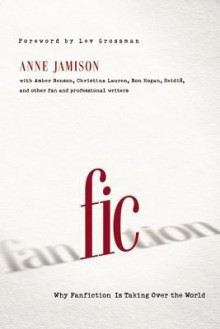
"Mainstream publishing wasn't giving us what we wanted so we made it ourselves."
-tby789, author of "The Office" (aka Christina Hobbs of Christina Lauren, co-author of the published fan fiction Beautiful Bastard aka The Office)
The essay on the Twilight Fandom begins with the above quote, and introduces the go-to explanation for the popularity of erotic Twilight fan fiction. While this reason is true in the case of other more subversive forms of fan fiction, it is not true in the case of popular Twilight fan fiction.
One only needs to read a published fan fiction, like Beautiful Bastard, to see it isn’t true. Most popular AH Twilight fan fics, especially those published as novels, are so similar to mainstream erotica and romance that it is hard to differentiate them from their mainstream contemporaries. Unless you’ve read other published Twilight fan fics, then it is easy to spot the same plot devices, characterization, cliches and tropes.
Also, most* of the people I talked to in the Twilight Fan Fiction Fandom didn’t read a lot and certainly not romance and/or erotica. For many of them Twilight was the first non-work or school related book they had picked up in years.
So was it that mainstream publishing let them down, or that they’d never really been exposed to it?
One could argue that the Twilight Fan Fiction Fandom because its connection to the Twilight books, is in part a product of mainstream publishing. It was Stephen Meyer’s books that ignited many of these women’s imaginations and led them to fan fiction. That was how the community was born.
I’m by no means saying that mainstream publishing hasn’t let women down on many fronts, and still does. However, in the case of Twilight they got it (at least a little bit) right. The sheer number of women who have read the books and seen the movies, not to mention those creating fan art/fiction, is proof of that.
It’s important to note that the part of Twilight Fandom that both Jamison and I are talking about doesn't represent the entirety of the Twilight Fandom. Considering the world wide success of the books and movies, how could it be?
We are talking about a community within the Twilight fandom that focused primarily on writing Twilight fan fiction, most of which was erotic, and was dominated by as Jamison put it "professional woman." This part of the fandom is often referred to as Twilight Fan Fiction Fandom, but it by no means includes all the many diverse people writing Twilight fan fiction.
The core of what made the Twilight Fan Fiction Fandom such a powerful force in so many women lives, and attracted them in droves, was the community itself. It was a safe place for many women who couldn’t find connections and understanding with other people in their daily life, much in the same way fandoms are for all fans. There they found other women like themselves, to whom they could relate to, who they could talk to about the books, but also other things they loved. Where they weren’t judged for talking candidly or writing about sex. But most of all where people listened to what they said, and responded enthusiastically.
While this may not seem extraordinary to someone with experience in fandom and fan fiction, for these women who had no previous exposure to fan communities, it was a revelation. The fact that “professional women” were so astonished by a nurturing, supportive community where they had a voice and were heard, says a lot more about mainstream culture and how society treats women, than mainstream publishing.
[Note: I’ll be breaking up my commentary on this essay into sections in order to keep it on point and easy to read. This post was only my commentary on the first line of this essay. Oh yeah, we’ve only just begun. Enjoy the ride.]
[*There are definitely avid readers in the Twilight Fan Fiction Fandom, and the community certainly inspired members to read more, but still a majority of the people I spoke with weren’t big readers and/or had never read in the romance or erotica genres prior to Twilight.]


 Log in with Facebook
Log in with Facebook 






